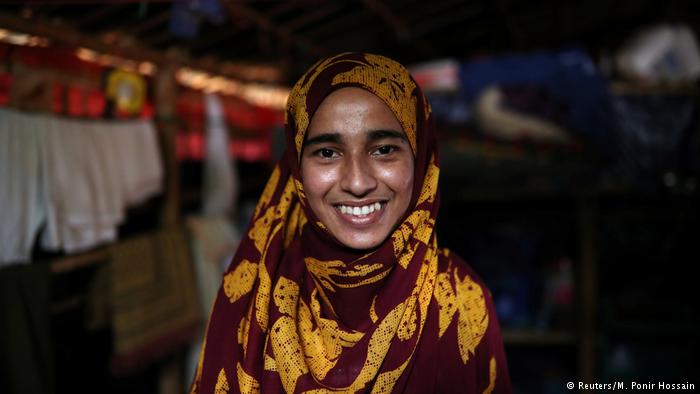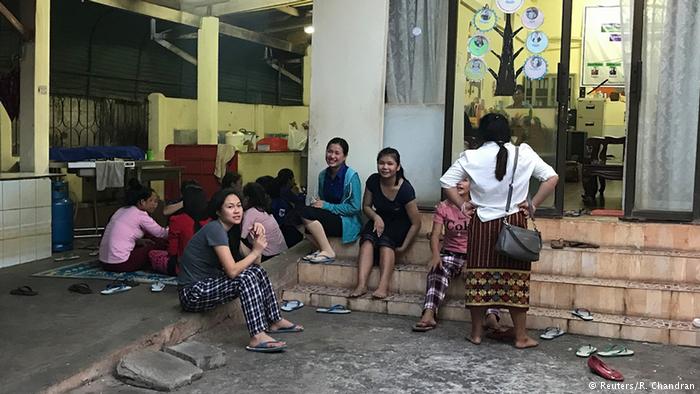Forced marriage in Bangladesh – still a major problem
 I remember Fatema Begum very well. A little girl from the small town of Kishoregonj in the Dhaka district in Bangladesh. She was in my peer group. I played Bouchhi, Gollachhut and so many local games with her. And some times we played with the dolls and arranged their marriages.
I remember Fatema Begum very well. A little girl from the small town of Kishoregonj in the Dhaka district in Bangladesh. She was in my peer group. I played Bouchhi, Gollachhut and so many local games with her. And some times we played with the dolls and arranged their marriages.
Fatema got married while she was studying in class eight. At that time she was just 15. Though my friends and I did not understand what the real meaning of marriage was, we nonetheless enjoyed the colorful lighting and the huge program of Fatema’s marriage.
One or two years later Fatema’s younger sister, Nasima, also got married. She was only14 or 15.
Like Fatema and Nasima I can recall at least 10 to 15 faces from our childhood peer group; from friends, classmates, neighbors and relatives who were forced to get married at such a tender age.
Tania and I were studying at the same class in the best high school in our town. But Tania had to stop her regular studies before reaching class nine because she had to marry so young.
Jhumi was a sweet, cute and cuddly girl. We were the best friends in high school. But she got married just after passing her Secondary School Certificate Examination. She could not do anything about the decision by her parents and her elder brothers to marry her off.
Similarity of parents minds…
Fatema and Nasima’s families did not come from an educated background. But they had enouigh money. Tania’s family was in financial difficulties and did not have much education. But Jhumi’s family background was totally different. Her family members were highly educated. The family was well off.
Despite the different levels off income and education, these families had one idea idea in common. Although their financial circumstances and educational background were different they were determined to marry off their daughters early. The parents did not listen to the opinion of their daughters in any of these cases. To my mind, this constitutes forced marriage.
Playing with the dolls…
I grew up in a small town, not in a village. But in that small town I witnessed lots of wedding parties for an under-age bride. Can you imagine that if this was the situation in a town, what it would be like in the thousands of villages in Bangladesh? My mother came from a village. She got married at about 16. Her mother (my grandmother) was married when she was only 8 or 9 years old.

A report on the state of the world’s children in 2012 by the United Nations Children’s Fund says that, up to 66 percent girls of Bangladesh are being married before their 18th birthday, that is according to Reuters.
Let’s take a look from the bird’s eye view at the time of my grandmother and at the time of this ‘djuice’ period of mine.
My grandmother was born in a new state named Pakistan just after the partition of India in 1947. My mother was born at the end of Pakistani rule of East Pakistan. And I was born in new country named Bangladesh that replaced East Pakistan.
In these sixty years, the history of the country has changed a lot. The poverty rate has been reduced. The literacy level has risen sharply. Women empowerment has increased. Activists have raised their voices against the violation of human rights. Our capital market expanded a lot. Our garments sector has gone international.. But the thinking style about the marriage of underage girls is still very traditional and stereotyped.
Many parents still think that the girls are burden. Specially, poor and uneducated people feel that girls should be married off early so they can leave their family home. As a girl will not be able to support her parents when they are old, spending money on a girl is a loss-making business.
Dowry payments are another factor that makes girls a burden to parents from poor or lower middle class families. So parents always try to arrange their daughters marriages with a minimum amount of dowry. This often means marrying girls off to much older men.
Another reason for forced marriage is the security of girls. They are not safe on the roads, on the buses, trains, at market places, in school, college, university and sometimes not in their own homes. Brothers are also very concerned about the safety of their younger or elder sisters. Rape, acid attacks, physical assault and eve teasing are all very common phenomena in Bangladesh.
For parents, the easiest way to simplify their lives is to arrange a early marriage for their daughter. For this reason the tradition lives on.
A report on the state of the world’s children in 2012 by the United Nations Children’s Fund says that, up to 66 percent girls of Bangladesh are being married before their 18th birthday, that is according to Reuters.
This reports made me very sad. And help me to recall the names as Fatema, Nasima, Karima, Rahima, Runa, Tania , my dearest Jhumi all of whom were doomed by forced marriage.
In our childhood we used to play with the dolls. Sometimes we arranged marriages for the dolls. And we even invited a few guests to the wedding party of the dolls. It was just a game. This report makes me think that to parents, their daughters are just like dolls, who do not have any opinions or rights.
Puppet life…. How long?
In the case of forced marriage I don’t think that the Dhaka government is fully committed to eliminating this problem. Although there are some laws against underage marriage in Bangladesh, most of the time they are ignored.
Of course this ground reality will not change overnight. But if the government takes the initiative and can involve other NGOs in this work then this could trigger change on a broader scale. We need a campaign in the mass media against underage marriage to make people aware of the situation and the injustice. And, the safety of girls must be improved.
but a public awareness campaign is not enough on its own. The government needs to help young girls and women to work and earn money through work creation programmes. If a girl can earn money and feed her family then parents will rethink the idea that daughters are burden.
Dream will not be stopped …
Work on such programmes should start now. We know that “a journey of a thousand miles begins with a single step’’. And the clock is ticking. Thousands of Fatemas, Nasimas, Tanias and thousands of friends like Jhumi are losing their dreams every day. How much longer must we watch them. crying and withering like leaves in the autumn?
Author: Afroja Shoma
Editor: Grahame Lucas






